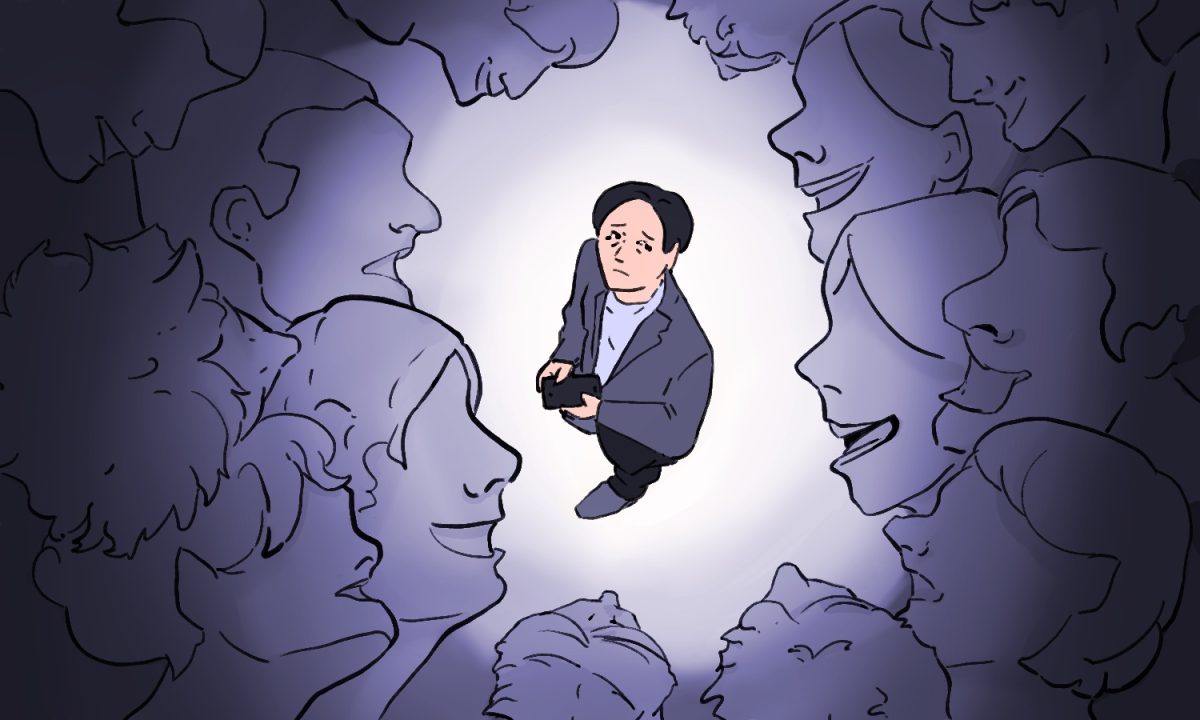Humans are wired to find identity within their actions and beliefs. Sometimes this leads to positive interactions with people who are similar, but other times it drags them into an echo chamber.
An echo chamber is an information environment that only reinforces an individual’s pre-existing beliefs. The psychology surrounding this phenomenon is based on social- and personality-driven behavior. The term itself often implies that the person who is caught inside an information environment becomes an extreme and polarized version of themself through enabling.
Matthew Hitt, an associate professor in Colorado State University’s political science department, said he found it to be a much more complex dynamic. He claimed that the most ideologically extreme people are the ones who often seek out both agreeable and disagreeable communication networks.
In Hitt’s article “Home Style Opinion,” he found the real issue in people’s information selection to be the scale; a person most likely becomes polarized due to an overconsumption of information and a lack of personal connection with subjects.
“American political media has fragmented and nationalized,” Hitt said. “It’s not that people don’t read newspapers anymore; it’s that people read The New York Times.”
Humans are drawn to dramatic, conflict-driven and high-stakes issues. A well-intentioned political actor can research an abundance of world events, but if there are no attempts to narrow their findings, it’s nearly impossible to form nuanced opinions. It can be tempting to find a single position — a magic bullet — and apply it to every problem.
Within an echo chamber, this strategy receives consistent positive feedback. This can also cause people to disagree with sources just for the sake of argument, fueling their intense opinions instead of engaging in meaningful interactions.
Social media has worsened this issue through its reliance on engagement-based algorithm systems, but it is also true that individuals choose their own environments. A person with an interest in politics may continue to click on content about a certain subject and form opinions that then determine their next click. This can lead to a cycle in which they are repeatedly shown the same opinionated content, ultimately creating an echo chamber.
“If you’re talking about echo chambers in social media, the ground in that landscape shifts so quickly that it’s hard for research to keep up with it,” Hitt said.
Hitt was also critical of statements that blame the current political climate on websites such as X and TikTok without considering selection or confirmation bias. Hitt said he believes people should claim some agency in their choice of environments, especially regarding social media intake.
“You’re going to feel much more empowered … if you are actually doing something and not just passively consuming nationalized, fragmented, polarizing political information.” -Matthew Hitt, CSU political science associate professor
Echo chambers have been a part of communication for as long as it has been tracked. Hitt used the example of a bowling team that begins as a mundane social group but becomes an echo chamber once it is the primary source of information for those apart of it. Echo chambers are fueled by a lack of new information, not solely because of social media. Instead of creating a breeding ground for extremist ideologies, echo chambers are most potent in how they increase the emotional tensions that already exist.
Kenan Thomas, a junior at CSU who is double-majoring in political science and history, shared his experience with internet echo chambers during the 2020 U.S. election.
“My social media feeds were filled with posts that matched my political beliefs,” Thomas said. “Over time, I noticed the content getting more and more extreme, and I started to get emotionally attached.”
When identity is interchangeable with beliefs, it becomes nearly impossible to avoid polarized thinking. Martín Carcasson, founder and director of the CSU Center for Public Deliberation, described a possible reason for this.
“Issue or ideological polarization hasn’t really changed that much,” Carcasson said. “What’s changed is the second kind of polarization, which is the emotional one.”
Affective polarization, as Carcasson defined, is based on contempt rather than differing opinions. It is this kind of polarization that makes echo chambers so disruptive. One poll by the Pew Research Center charted people’s political leanings from 1994 to 2017. The divide between supporters grew rapidly, especially around sensitive identity-related issues. Carcasson, who specializes in creating better communication by training and utilizing facilitators in a variety of situations, said he believes this is detrimental to the democratic system.
“Spend more time to make sure you hear from people and have the tough conversations and struggle through, but the payoff is a better decision,” Carcasson said.
Carcasson delved further into the journalistic debates that involve confirmation bias. He stated that many people don’t want to hear nuances in journalism; they want to be catered to. He used the term “principled impartiality,” referring to a process in which someone remains impartial while still adhering to a solid set of guidelines.
Reality-focused approaches to information and communication seem to be the most successful way to avoid echo chambers. Instead of individuals focusing their attention on learning every aspect of an issue, it’s crucial to learn about the things that affect one’s personal community: reading the local paper, voting in local elections and speaking up at community events.
“You’re going to feel much more empowered … if you are actually doing something and not just passively consuming nationalized, fragmented, polarizing political information,” Hitt said.
Reach Maiya Kreamer at science@collegian.com or on social media @RMCollegian.











